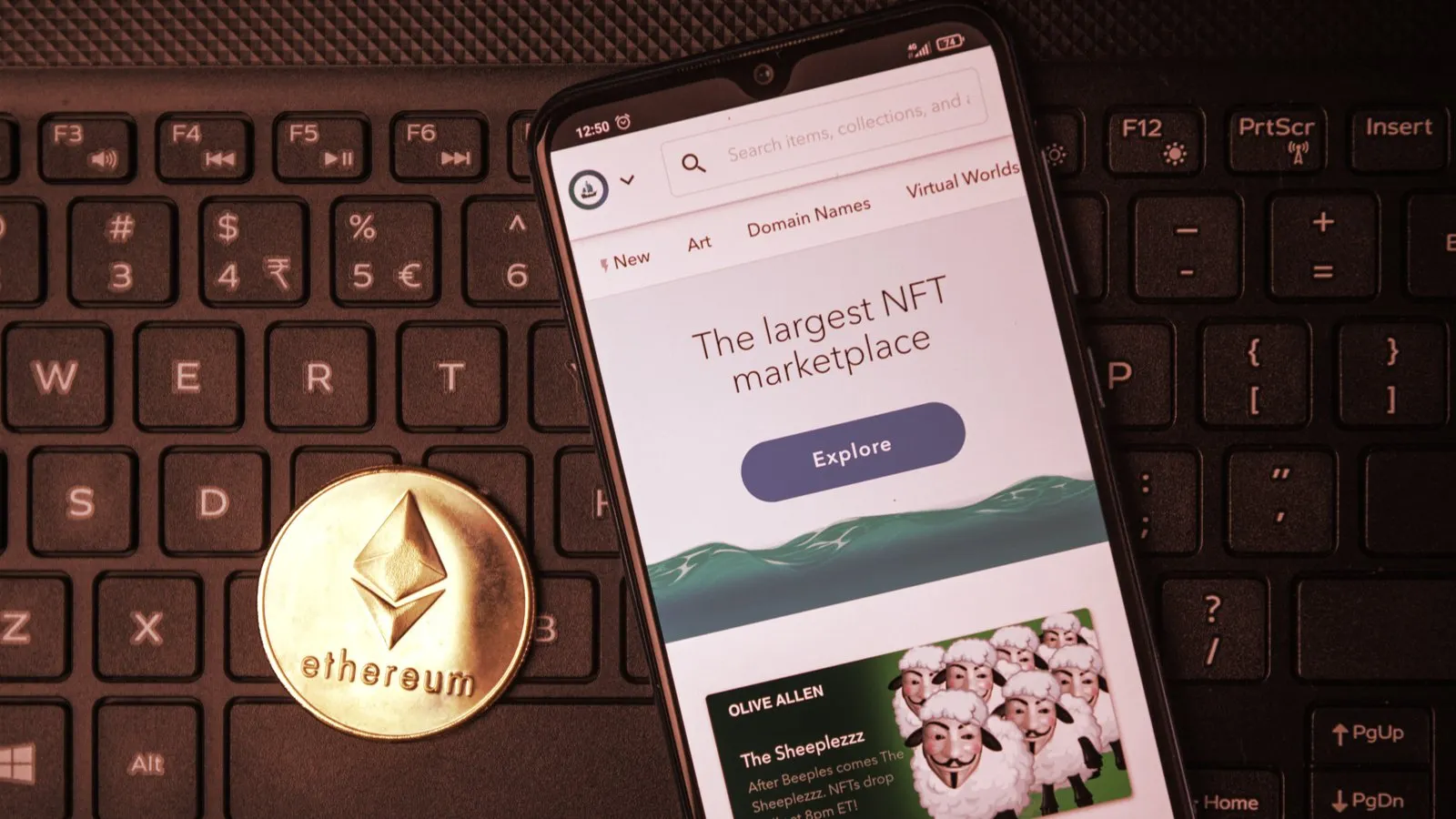In brief
- A bug in the OpenSea marketplace code reportedly resulted in at least 42 NFT collectibles being accidentally burned, or destroyed.
- The issue was reportedly tied to the use of ENS names, which are like easy-to-read domains that point to Ethereum wallets.
OpenSea is the single hottest platform for purchasing NFTs right now, topping $3.4 billion worth of transaction volume in August alone. But when something goes wrong with the platform itself, it can have serious consequences for owners of crypto collectibles, as some OpenSea users discovered yesterday—with nearly $100,000 in estimated losses.
Nick Johnson, lead developer of the Ethereum Name Service (ENS)—a lookup service that provides easily-readable names for Ethereum wallet addresses—tweeted on Tuesday that a “bug introduced to [OpenSea’s] transfer page in the past 24 hours” accidentally burned (i.e. destroyed) NFTs that users tried to transfer to an Ethereum wallet using an ENS name.
An NFT acts like a deed of ownership to a rare digital item, including images, video clips, interactive video game items, and plenty more. Many NFT collectors use ENS names to simplify the process of transferring digital assets to an Ethereum wallet address (which is a lengthy string of letters and numbers), as well as to cultivate a brand around their collection.
Johnson himself lost an NFT due to the bug, but he’s not alone: all told, collectors lost at least 42 NFTs, according to data that he compiled. An estimate of the floor price—or the cheapest NFT listed for sale—for each collection suggests that a minimum of 28.44 ETH worth of NFTs were lost, or more than $99,000 worth as of this writing.
A frantic call to @OpenSea later, it transpires I was the first and apparently only victim of a bug introduced to their transfer page in the past 24 hours, which affected all ERC721 transfers to ENS names. Ownership of rilxxlir.eth is now permanently burned.
— nick.eth (@nicksdjohnson) September 7, 2021
He encountered the bug while transferring the first ENS name ever registered, rilxxlir.eth. Johnson tried to transfer that NFT representing the ENS name into his personal wallet (nick.eth), but OpenSea sent the NFT to an incorrect wallet address instead. He wrote that OpenSea’s interface failed to resolve the ENS name attached to his wallet, and “instead [populated] the ‘to’ address with some nonsense.”
In other words, the NFT was sent into the void. Due to the immutability of blockchain networks, the NFT representing the ENS name is now apparently lost forever, and cannot be transferred back to him. “Ownership of rilxxlir.eth is now permanently burned,” he tweeted.
Johnson initially tweeted that he was the “first and apparently only victim” of the bug, after talking to OpenSea, which he said has fixed the bug. But he later found that at least 42 NFTs from various collectors were apparently affected by the bug, and are likewise effectively destroyed. The list includes pieces from various NFT collections, including Art Blocks, Bloot, and The Sevens.
Some of the other affected users have likewise tweeted about the situation, asking OpenSea for a response and compensation. OpenSea has yet to comment publicly on the situation, as of the time of publication. Johnson tweeted that the marketplace is “still writing a postmortem” about the situation.
Decrypt reached out to OpenSea for comment, including whether the firm has plans to compensate affected users, but the company did not immediately respond. Johnson told Decrypt that he hasn’t heard anything from OpenSea yet regarding potential compensation for NFTs lost due to the bug.
Late Wednesday evening, the company issued a statement via Twitter, which appears to be its only public comment on the matter thus far. "We've reached out to the small number of users who were affected by the issue yesterday where sending an NFT to an ENS name sent it to the encoded version of the literal text (e.g. "OS.eth") instead of the associated address," the company tweeted. "This was a bug we introduced and fixed that day."
Editor's note: This article was updated after publication to include comments from Nick Johnson and a statement from OpenSea.

